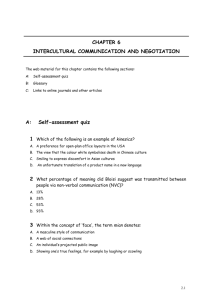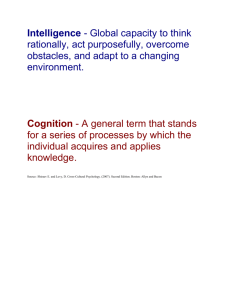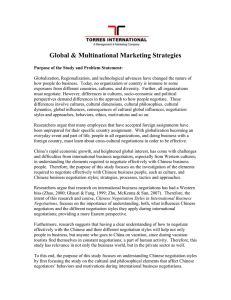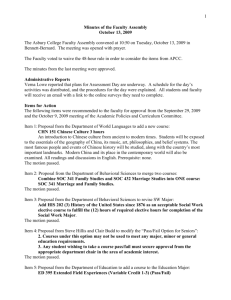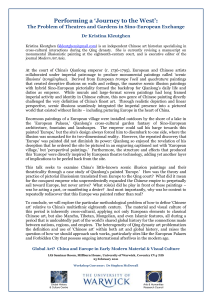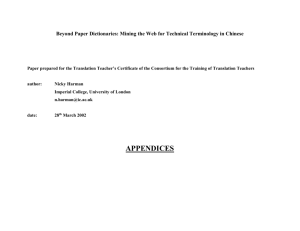Chapter 8
advertisement
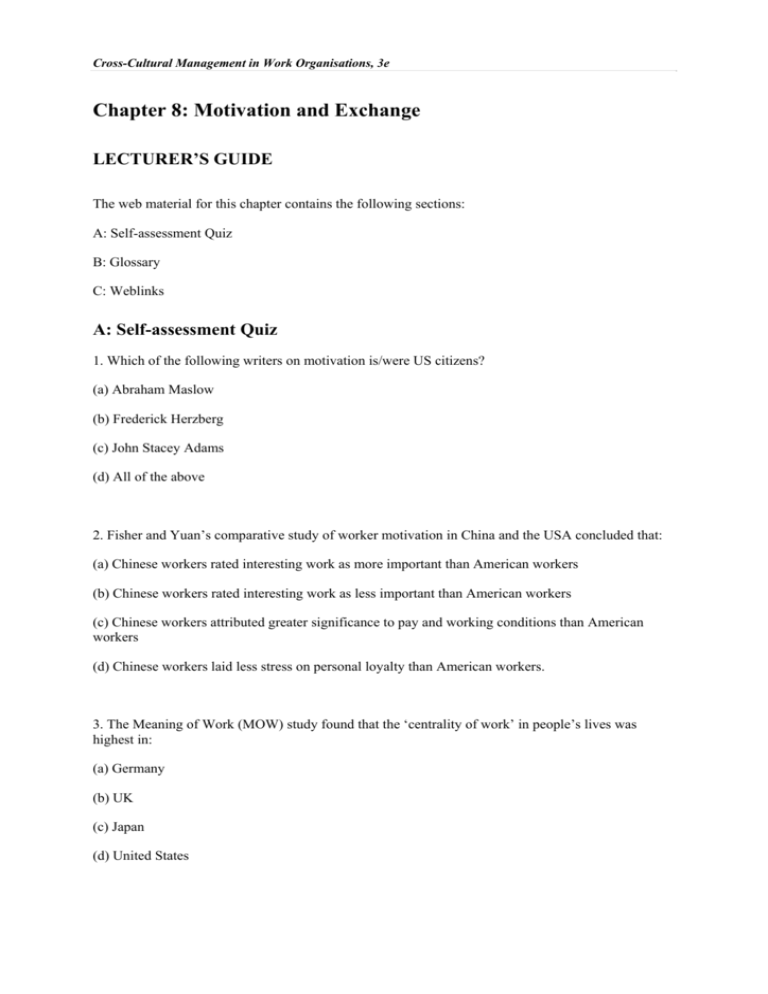
Cross-Cultural Management in Work Organisations, 3e Chapter 8: Motivation and Exchange LECTURER’S GUIDE The web material for this chapter contains the following sections: A: Self-assessment Quiz B: Glossary C: Weblinks A: Self-assessment Quiz 1. Which of the following writers on motivation is/were US citizens? (a) Abraham Maslow (b) Frederick Herzberg (c) John Stacey Adams (d) All of the above 2. Fisher and Yuan’s comparative study of worker motivation in China and the USA concluded that: (a) Chinese workers rated interesting work as more important than American workers (b) Chinese workers rated interesting work as less important than American workers (c) Chinese workers attributed greater significance to pay and working conditions than American workers (d) Chinese workers laid less stress on personal loyalty than American workers. 3. The Meaning of Work (MOW) study found that the ‘centrality of work’ in people’s lives was highest in: (a) Germany (b) UK (c) Japan (d) United States Cross-Cultural Management in Work Organisations, 3e 4. Who proposed that the notion of a private, public and collective ‘self’ could impact upon attitudes towards relationships at work? (a) Abraham Maslow (b) Edwin Locke (c) Harry Triandis (d) George W. Bush B. Glossary Content theories of motivation: Attempt to identify specifically what motivates people at work and typically emphasises human needs in this regard. Baby-boomers: A demographic group born between 1945 and 1960, first identified in the USA, which placed a high value on self-fulfilment, including a preference for psychologically meaningful work. Meaning of Work: A term encompassing both the general importance of work within lives, and preferences regarding work goals in people’s actual working lives. C. Weblinks A more detailed summary of Shalom Schwartz’s work on values and their cultural dimension can be found via: http://www.socialpsychology.org/journals.htm www.Changingminds.org


